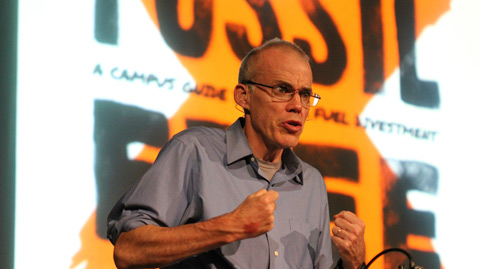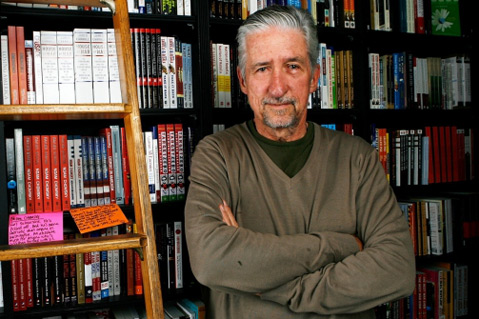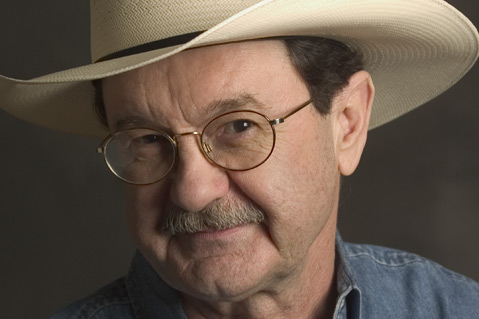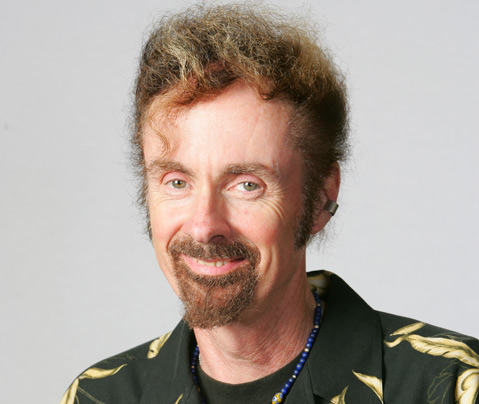Will Future Generations Forgive Us?
Letters to the Future from Tom Hayden, Bill McKibben, T.C. Boyle, and Jim Hightower

Who can control the weather? We all know the intricacies of the global interplay of wind, sea, and storm are beyond exact calculus. What has become apparent to most of us, however, is that human actions since Prometheus brought us fire are increasingly affecting the basic necessities of life worldwide, such as food and water.
The 21st UN Conference of Parties, or COP 21, takes place in Paris on November 30-December 11 in a gargantuan, compressed talkfest that the world hopes will result in greenhouse-gas-reduction action from the major industrial powers. In anticipation of Paris, member newspapers of AAN (Association of Alternative Media) are publishing Letters to the Future from thoughtful citizens in numerous disciplines. The following are a select few.
Bill McKibben: Seize the Moment
Dear Descendants,
The first thing to say is, sorry. We were the last generation to know the world before full-on climate change made it a treacherous place. That we didn’t get sooner to work slowing it down is our great shame, and you live with the unavoidable consequences.
That said, I hope that we made at least some difference. There were many milestones in the fight — Rio, Kyoto, the debacle at Copenhagen. By the time the great Paris climate conference of 2015 rolled around, many of us were inclined to cynicism.
And our cynicism was well-taken. The delegates to that convention, representing governments that were still unwilling to take more than baby steps, didn’t really grasp the nettle. They looked for easy, around-the-edges fixes, ones that wouldn’t unduly alarm their patrons in the fossil-fuel industry.
But so many others seized the moment that Paris offered to do the truly important thing: organize. There were meetings and marches, disruptions and disobedience. And we came out of it more committed than ever to taking on the real power that be.
The real changes flowed in the months and years past Paris, when people made sure that their institutions pulled money from oil and coal stocks, and when they literally sat down in the way of the coal trains and the oil pipelines. People did the work governments wouldn’t — and as they weakened the fossil-fuel industry, political leaders grew ever so slowly bolder.
We learned a lot that year about where power lay: less in the words of weak treaties than in the zeitgeist we could create with our passion, our spirit, and our creativity. Would that we had done it sooner!
An author, educator, and environmentalist, McKibben is cofounder of 350.org, a planet-wide grassroots climate-change movement. He has written more than a dozen books.

Tom Hayden: Green Global New Deal
Dear Future Generations,
At the time I write this, the greatest fissure in global politics is between the affluent white North and the suffering and devastated victims of floods, fires, blazing temperatures, deforestation, and war from the Global South. Writ large, the global crisis between rich and poor is the background to environmental and economic injustice.
At the December United Nations climate summit in Paris, the countries of Asia, Africa, and Latin America, who will bear the greatest burdens of the crisis, will be demanding a Global Green Fund to pay for environmental mitigation and economic development. The price tag is a paltry few billion dollars at this point, compared to the $90 billion cost estimates for the wars in Iraq and Afghanistan, plus the budgets of our surveillance agencies.
What is needed is a Green Global New Deal funded from public and private sources to begin saving the Earth.
The mass movement will gain momentum, unfortunately, from repetitive climate disasters that require billions for infrastructure alone. Si, se puede; it can be done because there is no alternative. That’s why producing affordable zero-emission cars is important in Hunters Point (the African-American center of San Francisco) and Boyle Heights (the heart of Los Angeles’ Mexican-American community) and the barefoot Third World bloc representing a majority of the world’s nation states.
California Senate Pro Tem Kevin de León, a leader in the cause of environmental justice, has legislated a remarkable shift in environmental and budgetary priorities in the state where I reside. Call it the California Model. Current law now requires that environmental funding go both to reduction of carbon emissions and co-equal benefits for disadvantaged communities. During the four years beginning in 2014, the state will invest $120 billion on such a climate justice program from sources including the much-debated cap-and-trade program, which brings in at least two or three billion annually along with revenue from tax reforms funded by Tom Steyer, the billionaire San Francisco investor who has made climate justice his passion.
This model is being carried by California Gov. Jerry Brown’s administration by a series of state and regional pacts with the goal of achieving a more stable climate. Almost alone, the governor is pursuing energy diplomacy with formal agreements with 11 U.S. states and a growing list of major countries from China to Brazil to Germany. Call it the emerging Green Bloc. By Brown’s conservative numbers, the Green Bloc represents 100 million people and a GDP of $4.5 trillion. But these numbers are low: By my estimate, we are talking about 166 million people in states pursuing low- to no-carbon policies in American states with 262 electoral college votes! Tea Party, beware.
We are entering the pre-post-Brown era in California along with the pre-post-Obama era in the nation, intensifying the urgency of electing a governor, president, and officials with the best ability to navigate the critical transitions ahead.
A lifelong political activist and author, Hayden is a former member of the California Legislature.

Jim Hightower: Political Boneheads
Hello? People of the future … anyone there? It’s your forebears checking in with you from generations ago. We were the stewards of the Earth in 2015 — a dicey time for the planet, humankind, and life itself. And … well, how’d we do? Anyone still there? Hello.
A gutsy, innovative, and tenacious environmental movement arose around the globe back then to try lifting common sense to the highest levels of industry and government. We had made great progress in developing a grassroots consciousness about the suicidal consequences for us (as well as those of you future earthlings) if we didn’t act pronto to stop the reckless industrial pollution that was causing climate change. Our message was straightforward: When you realize you’ve dug yourself into a hole, the very first thing to do is stop digging.
Unfortunately, our grassroots majority was confronted by an elite alliance of narcissistic corporate greedheads and political boneheads. They were determined to deny environmental reality in order to grab more short-term wealth and power for themselves. Centuries before this, some Native-American cultures adopted a wise ethos of deciding to take a particular action only after contemplating its impact on the seventh generation of their descendants. In 2015, however, the ethos of the dominant powers was to look no further into the future than the three-month forecast of corporate profits.
As I write this letter to the future, delegations from the nations of our world are gathering to consider a global agreement on steps we can finally take to rein in the looming disaster of global warming. But at this convocation and beyond, will we have the courage for boldness, for choosing people and the planet over short-term profits for the few? The people’s movement is urging the delegates in advance to remember that the opposite of courage is not cowardice; it’s conformity — just going along with the flow. After all, even a dead fish can go with the flow, and if the delegates don’t dare to swim against the corporate current, we’re all dead.
So did we have the courage to start doing what has to be done? Hello … anyone there?
A national radio commentator, writer, and public speaker, Hightower is also a New York Times best-selling author.

T.C. Boyle: Sorry About That
Dear Rats of the Future:
Congratulations on your bipedalism: It’s always nice to be able to stand tall when you need it, no? And great on losing that tail, too (just as we lost ours). No need for that awkward (and let’s face it: ugly) kind of balancing tool when you walk upright, plus it makes fitting into your blue jeans a whole lot easier. Do you wear blue jeans — or their equivalent? No need, really, I suppose, since you’ve no doubt retained your body hair. Well, good for you.
Sorry about the plastics. And the radiation. And the pesticides. I really regret that you won’t be hearing any birdsong anytime soon, either, but at least you’ve got that wonderful musical cawing of the crows to keep your mornings bright. And, of course, I do expect that as you’ve grown in stature and brainpower, you’ve learned to deal with the feral cats, your one-time nemesis, but at best occupying a kind of ratty niche in your era of ascendancy. As for the big cats — the really scary ones: tiger, lion, leopard, jaguar — they must be as remote to you as the mammoths were to us. It goes without saying that with the extinction of the bears (polar bears: they were a pretty silly development anyway, and of no use to anybody beyond maybe trophy hunters) and any other large carnivores, there’s nothing much left to threaten you as you feed and breed and find your place as the dominant mammals on earth. (I do expect that the hyenas would have been something of a nasty holdout, but as you developed weapons, I’m sure you would have dispatched them eventually.)
Apologies, too, about the oceans, and I know this must have been particularly hard on you since you’ve always been a seafaring race, but since you’re primarily vegetarian, I don’t imagine that the extinction of fish would have much affected you. And if out of some nostalgia for the sea that can’t be fully satisfied by whatever hardtack may have survived us, try jellyfish. They’ll be about the only thing out there now, but I’m told they can be quite palatable, if not exactly mouth-watering, when prepared with sage and onions. Do you have sage and onions? But forgive me: of course you do. You’re an agrarian tribe at heart, though in our day we certainly did introduce you to city life, didn’t we? Bright lights, big city, right? At least you don’t have to worry about abattoirs, piggeries, feed lots, bovine intestinal gases, and the like — or, for that matter, the ozone layer, which would have been long gone by the time you started walking on two legs. Does that bother you? The UV rays, I mean? But, no, you’re a nocturnal tribe anyway, right?
Anyway, I just want to wish you all the best in your endeavors on this big, blind rock hurtling through space. My advice? Stay out of the laboratory. Live simply. And, whatever you do, please — I beg you — don’t start up a stock exchange.
With Best Wishes,
T.C. Boyle
P.S. In writing you this missive, I am, I suppose, being guardedly optimistic that you will have figured out how to decode this ape language I’m employing here — especially given the vast libraries we left you when the last of us breathed his last.
A novelist and short-story writer, T.C. Boyle has published 14 novels and more than 100 short stories.
The Santa Barbara Independent thanks and recognizes Melinda Welsh, founding editor of Sacramento News & Review, and her staff, who originated the idea and assembled these letters. More are at letterstothefuture.org. As COP 21 events unfold in Paris, Santa Barbara Independent editor-at-large Ethan Stewart, photographer Kodiak Greenwood, and UCSB professor emeritus Catherine Gautier-Downes will be posting reports at independent.com.



